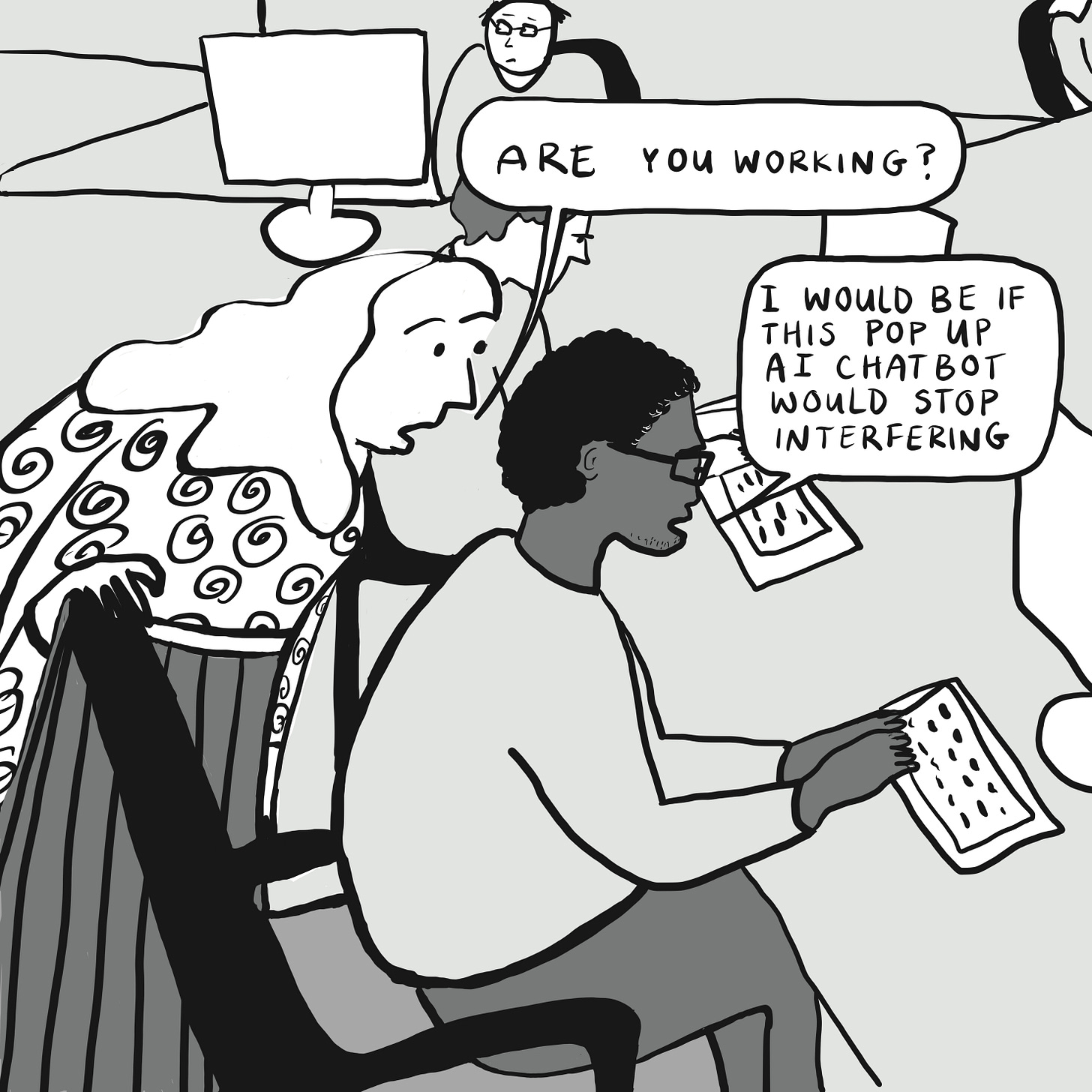Any moment now, machines are about to take over humans. Quite literally. How so? Falling birthrates and rising numbers of internet- connected devices. At the moment the global population stands at eight billion and the number of smartphones in circulation around the world is seven billion,but with one study predicting that global fertility has shrunk by as much as half already, and the numbers of computers of one kind or another rising exponentially, the sci-fi world has basically arrived.
What does this mean for mere mortals, doing our work, using computers (according to Pew Research 95% of American adults use the internet? This is the question, and it’s one I am thinking about a lot, not least because later this month I will be speaking on a panel entitled ‘The Communication Crisis’ at the How The Light Gets In Festival In London.
This session addresses the growing reality that we spend an awful lot of time on connected platform technology and devices but time seems to run through our hands like an egg-timer runs through sand.
My interest in this goes back a long way. In 2017 I wrote Fully Connected: Surviving & Thriving in an Age of Overload was published, which I’m revisiting for a new edition. Back then, pre-pandemic, pre-generative AI, Wellbeing was all about beanbags in the office and productivity was all about dry economic data, not a mainstream conversation.
But productivity, wellbeing and time are all connected. We all feel Carpe Diem after Covid-19, and we all recognise that how we spend our time – or waste it using technology – matters as much as how much time we spend with each other offline, in what we now call IRL.
I’ve been doing a bit of work with Docusign and they gave me early sight of their 2024 Digital Maturity Report. Their data involving 1800 decision makers in EMEA, evenly split between large organisations, SMEs and start-ups, echoes a risk that the promise of productivity has been over-indexed and under-delivered: That we are busier than ever, certainly more connected than ever, but not more productive and definitely not happier.
The report, entitled Accelerating Digital Maturity in 2024: How Businesses Can Break the Productivity Paradox provides a clear picture of how white collar keyboard workers continue to waste an awful lot of time on ‘low value’ work, ie getting tangled in the weeds of digital work which isn’t productive – Docusign’s data shows that 12.6 hours or nearly two days a week are wasted this way and I don’t think this is a stretch to believe.
One thing is clear: simplicity of execution and adoption when it comes to digital tools is critical. Docusign quotes a senior business and legal manager at Uber saying that they’ve ‘reduced the time it takes to draft, review and approve contracts by over 50%’. Without doubt, anything which de-clutters the digital surfaces, and which cleanly and clearly saves time, will win out over the stuff which just creates more and more of itself: the windows-within-windows which you click on to open endlessly, that frustrating mix we all know too well.
Let’s not forget that incredible research published in Harvard Business Review 2023 showing that we ‘toggle’ 1200 times per day between applications!
Then there’s a paradox even greater than productivity itself, namely that, according to Docusign’s research, organisations are not maximising the use of the technology which is at their disposal. 65% cite skills gaps in knowing what’s possibly digitally, and for this reason their four-stage depiction of digital maturity as either ‘very high’, ‘high’, ‘medium’ or ‘low’ matters: Are you or your organisation about to automate systems, use real-time data and take advantage of machine learning in a way which keeps the humans working more productive (“very high”) or are you languishing on paper-based processes without any integrated systems which makes things sluggish (“low”)?
We all have to decide, as the birth rate plummets and the birth of this new era of digital connectivity rises. What we use computers, the internet and digital technology for – and why?
The more we read, think, talk and iterate, the better.
Let me leave you with a quote from Ursula Le Guin, high priestess of literary science fiction, who gave an interview to Harpers magazine in 2008, a year after The Kindle came out, ie before we began to routinely consumer books and indeed purchase them online. Nevertheless she commented on the book in a way which captures perfectly our dilemma today, to stay human in a machine age: “It doesn't have to be plugged in, activated, or performed by a machine; all it needs is light, a human eye, and a human mind. It is not one of a kind, and it is not ephemeral.”
Thank you for reading. If you would like to know more about my work it’s on my website.


